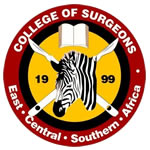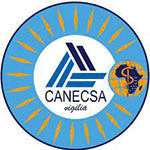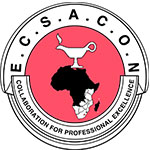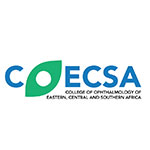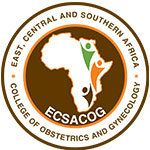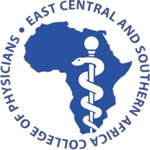The East Central and Southern Africa College of Health Sciences (ECSA-CHS) was established by the member states of the East Central and Southern Africa Health Community (ECSA-HC).The Health Ministers Conference noting gaps in Human Resources for Health, especially the limited number of specialists’ medical workers, resolved for additional training approach of health specialists to complement the university approach; i.e. the fellowship, where training occurs at work place.
The ECSA-CHS fellowship approach ensures training of the health specialists is localized in the ECSA-HC region. This leads to avoidance of high costs of training health specialists abroad, supplements the limited numbers churned through the university system, ensure trainees continue to provide services at their work places-usually district level hospitals, promote health worker retention hence improving access to quality specialists services outside capitals and major urban towns among others.
Trainings in various health fields are conducted by discipline-based professional colleges affiliated to ECSA-CHS. The ECSA-CHS oversees and coordinates the functioning of these semi-autonomous professional colleges.
Our Vision
A leading provider of high-quality health specialists training and learning in eastern and southern Africa, and beyond.
Our Mission
The Mission of ECSA-CHS is to promote excellence in specialist services in the East Central and Southern Africa region in training, service provision and research through the constituent Colleges.
Training and research
- Provide framework for common registerable qualifications in specialty trainings that are accredited and recognized by education and professional regulatory authorities in the region
- Provide continuing professional development and education for specialists
- Promote research by the individual discipline-based colleges and multi-disciplinary collaborative research amongst the colleges and other stakeholders
Collaboration and partnership
- Coordinate activities of constituent discipline-based colleges and promote dialogue and collaboration amongst colleges and with other partners
- Collaborate to develop a leading health education programs for the specialists
Improved access to specialize healthcare services
- Design and implement innovative models that deliver specialize and super-specialize healthcare and complement member states efforts in ensuring access to such services.
Benefits of the ECSA-CHS to the Health Community
- Development of guidelines and standards in consultation with stakeholders that will ensure effective and timely accreditation processes and guaranteeing of the quality of trainings conducted by constituent professional colleges
- Engagement, especially with education and professional regulatory authorities in the region to facilitate and/or streamline accreditation of the professional colleges’ courses, and registration of qualified trainees to practice as specialist.
- Promotion of multi-center and multi-disciplinary research and facilitation of research-to-use (practice and policy) initiatives
- Resource mobilization for the development and sustenance of the ECSA-CHS and its constituent colleges
- Improved access to standardized, affordable, quality and registerable specialty training to health workers in the region.
- Improved access to specialize healthcare in the countries due to increase number of health specialists outside the capitals and major cities/towns
- Reduction in national health system costs e.g. through reduced referrals and recruitment costs, improve quality of care, etc.
- Evidence –informed healthcare practices and policies through research by the constituent colleges.
Governance and Administration
The College governance include the Senate, Executive Committee, and the College Administration. The Senate reports to the ECSA Health Ministers Conference through the ECSA-HC Advisory Committee. The Senate work is supported through its three standing Committees (i.e. the Academic Affairs; Administrative Affairs and Financial Affairs committees). The Administration is headed by a Registrar, who is the Chief Executive Officer.

